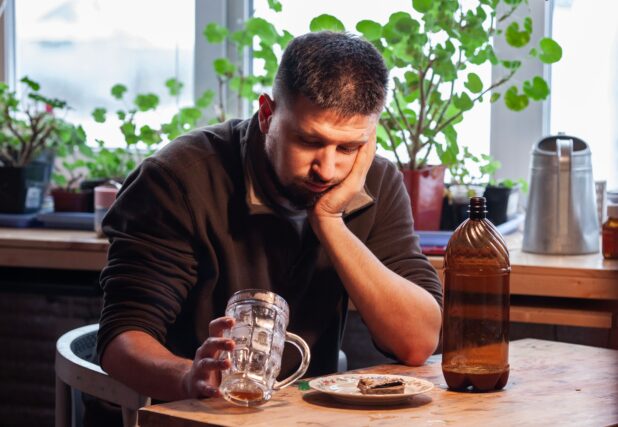If you feel like you’re struggling to make it through the day and wake up looking forward to it being over, there’s a clear problem.

You should be excited about life, but if you’re just going through the motions and willing the hours to pass, you could be living in survival mode. If you relate to any of these feelings and experiences, your mental health might be suffering, and it might be worth it to talk to your GP, a therapist, or even a friend or family member about what’s going on.
1. You’re always exhausted, no matter how much sleep you get.

If you’re feeling wiped out, even after a full night of sleep, it might be more than just physical tiredness. Mental and emotional fatigue can make you feel drained, even if you’re technically rested. Constant exhaustion is a major sign you’re in survival mode.
2. You struggle to make even the smallest decisions.

When you’re in survival mode, your brain is constantly overloaded, making it hard to think clearly. Simple decisions like what to eat for dinner or what to wear can feel overwhelming. You might even end up avoiding choices because it feels like just too much to handle.
3. Everything feels like it’s piling up.

Survival mode can make even the smallest tasks feel impossible to tackle. If your to-do list feels like it’s growing by the minute, and you can’t seem to make a dent in it, that’s a sign. You’re likely just trying to keep your head above water instead of making real progress.
4. You have little to no motivation to do anything.

When you’re stuck in survival mode, your motivation to do anything beyond the bare minimum drops. You might feel like you’re just going through the motions or doing what you have to, but not what you actually want to do. It’s hard to get excited about anything when you’re in this state.
5. You feel disconnected from people around you.

In survival mode, your focus is often so inward that you might feel distant or detached from friends, family, or coworkers. It can be hard to fully engage with anyone when all your energy is going toward just getting through the day. Unsurprisingly, disconnection can leave you feeling isolated.
6. You’re constantly reacting instead of planning.

When you’re in survival mode, you’re likely spending most of your time putting out fires instead of planning ahead. You might feel like you’re always reacting to whatever happens rather than being proactive. Existing in a constantly reactive state is exhausting and can keep you stuck in a cycle of stress.
7. You’re easily irritated or frustrated by small things.

If the smallest inconveniences are setting you off, it’s a good sign that your stress levels are maxed out. Survival mode leaves you with little patience or tolerance, so even minor annoyances can feel like major problems. Your emotional reserves are low, and it shows in your reactions.
8. You feel like you’re constantly running out of time.

Survival mode makes it feel like there’s never enough time in the day, no matter how hard you try. You might be rushing from one task to the next, always feeling behind and never really catching up. The sense of always being in a time crunch is a classic survival mode feeling.
9. Self-care feels like an impossible luxury.

When you’re in survival mode, taking care of yourself might seem like a distant dream. Self-care can feel like just one more thing to add to your endless list, so you end up skipping it altogether. Unfortunately, neglecting self-care only deepens the cycle of exhaustion and stress.
10. You feel numb or detached from your emotions.

Survival mode can leave you feeling emotionally numb, like you’re just going through the motions without really feeling anything. You might not experience the highs and lows you used to, or you may feel disconnected from your emotions entirely. This numbness is a sign that you’re just trying to cope.
11. You’ve lost sight of your long-term goals.

If you can’t remember the last time you thought about your long-term goals, it’s probably because survival mode has taken over. When you’re focused on just getting through the day, long-term planning can feel like a luxury you don’t have time for. Your bigger picture gets lost in the daily grind.
12. You’ve developed unhealthy coping mechanisms.

When you’re in survival mode, you might start leaning on things that aren’t helping, like overeating, excessive screen time, or avoiding responsibilities. These coping mechanisms can feel comforting in the moment, but they often end up making you feel worse in the long run.
13. You can’t remember the last time you truly relaxed.

If real relaxation feels like a distant memory, survival mode may have taken over. Even when you do have free time, you might find it hard to actually unwind because your mind is still racing. Being stuck in constant “survival” mode makes it nearly impossible to relax fully.




